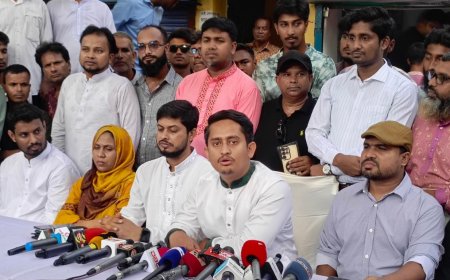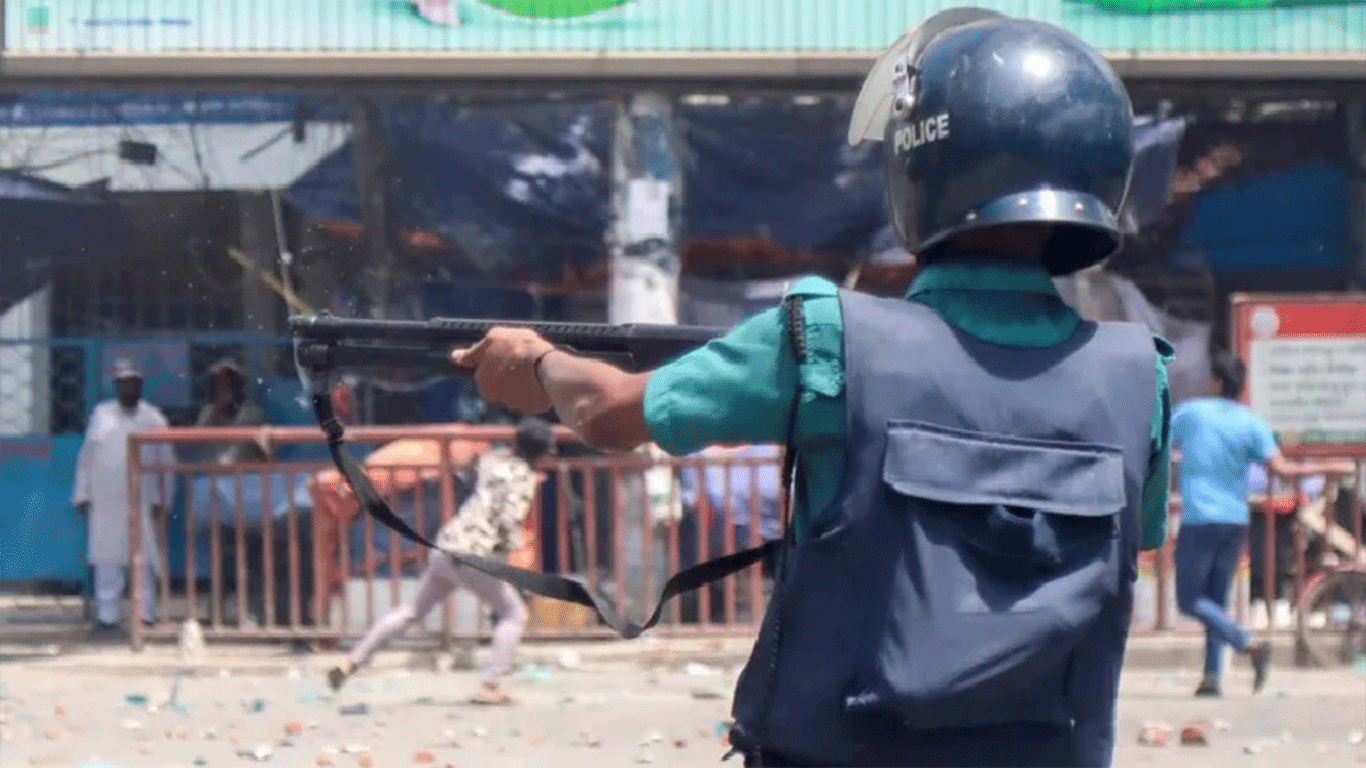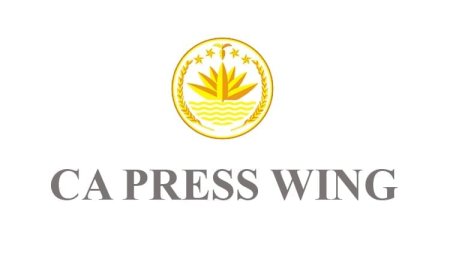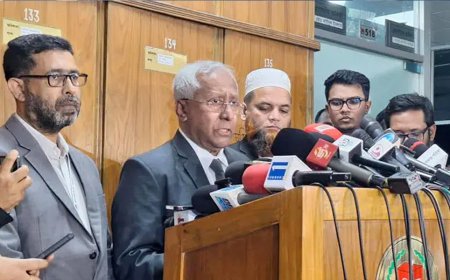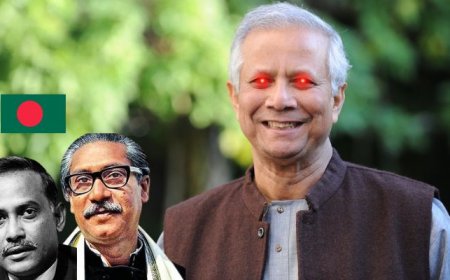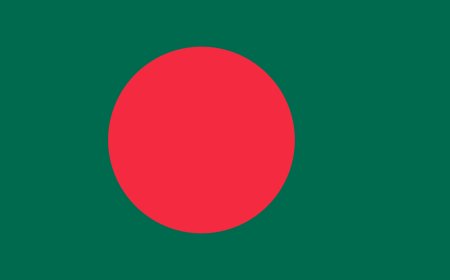Life, Literature, and More: Power, Corruption, and Morality in Bangladesh Viewed through "Lord of the Flies" and "Animal Farm"
Life, Literature, and More: Power, Corruption, and Morality in Bangladesh Viewed through "Lord of the Flies" and "Animal Farm"
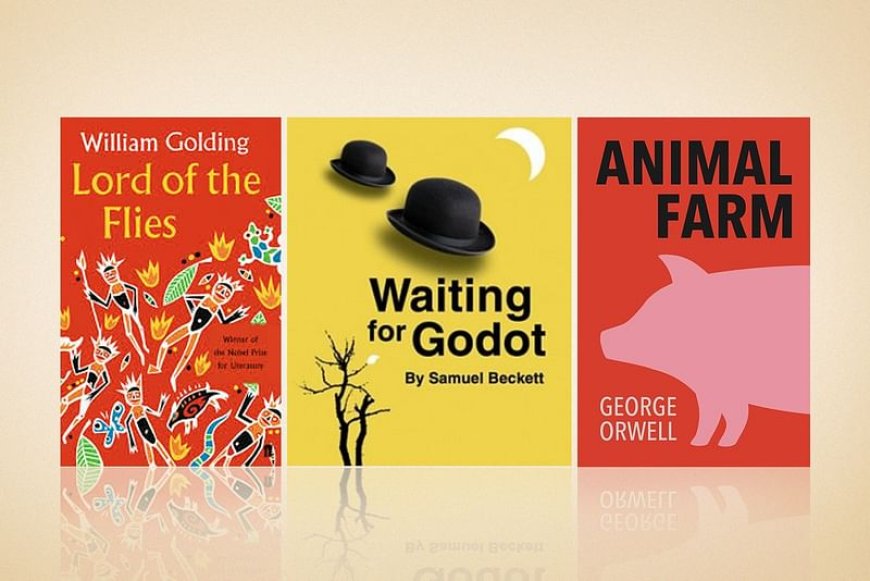
The novels Lord of the Flies by William Golding and Animal Farm by George Orwell offer profound insights into human nature, the corrupting influence of power, and the disintegration of societies. When examined in the context of Bangladesh’s current socio-political environment, these literary works provide a lens through which the nation's struggles with corruption, the abuse of power, and the distortion of leadership can be understood. They offer valuable frameworks to analyze the challenges of a developing nation striving for socio-economic stability.
By drawing on the ideas of Karl Marx and making connections with the characters Pozzo and Lucky from Samuel Beckett’s Waiting for Godot, this essay delves into how corruption, class struggle, and capitalist exploitation undermine the ideals of governance and societal progress, while also suggesting potential remedies for a prosperous Bangladesh.
The Corruption of Power: Lessons from Lord of the Flies
Golding’s Lord of the Flies explores the degeneration of a group of boys into savagery when left to govern themselves on a deserted island. The tension between Ralph, who symbolizes democratic leadership, and Jack, who represents autocratic rule driven by a thirst for power, mirrors the divisions within Bangladesh’s political landscape. In the country, the increasing concentration of power among a select few often alienates the population, much like the chaos and violence Jack's leadership ignites.
Recent reports from The Daily Star highlight the manipulation of institutions for personal gain, from corruption scandals to the suppression of dissent. Similar to the boys' dehumanization in the novel, these actions degrade the moral integrity of society, fostering a culture of fear and division. Golding’s message underscores the need for checks on power and the cultivation of ethical leadership to prevent societal collapse.
Recent articles in The Daily Star and Prothom Alo address similar concerns. For instance, a December 2023 piece in The Daily Star examines Bangladesh's stagnant score on the Corruption Perceptions Index, revealing entrenched corruption tied to the abuse of power and the failure to enforce laws effectively. The politicization of institutions and the suppression of dissent exacerbate these issues, further eroding public trust and perpetuating a cycle of impunity. These challenges align with the lessons of Golding’s narrative: without moral guidance, societies, like the boys on the island, are at risk of descending into savagery. Golding advocates for the cultivation of moral integrity and the creation of robust systems to prevent the abuse of power, offering a blueprint for a just and stable society in Bangladesh.
The Betrayal of Revolutionary Ideals: Orwell’s Animal Farm and Bangladesh
In Animal Farm, Orwell critiques the betrayal of revolutionary ideals as the pigs, who initially advocate for equality, become the oppressive rulers they once opposed. The famous line “All animals are equal, but some animals are more equal than others” encapsulates the distortion of collective aspirations for personal gain.
In Bangladesh, the 1971 liberation struggle promised a society founded on justice and equity. However, persistent issues like inequality, political patronage, and economic disparity now echo the dystopian world of Animal Farm. Prothom Alo regularly reports on the widening gap between the wealthy elite and the struggling majority, highlighting the rise of a modern bourgeois class. These elites, much like Orwell’s pigs, thrive on systemic exploitation, undermining democratic values and further marginalizing the population.
Marx’s critique of capitalism explains this phenomenon, arguing that the unchecked accumulation of wealth and power by the bourgeoisie results in the alienation and oppression of the proletariat. In Bangladesh, the confluence of political power and economic dominance perpetuates inequality, hindering the nation’s aspirations for inclusive growth.
Pozzo and Lucky: A Capitalist Microcosm
The relationship between Pozzo and Lucky in Samuel Beckett’s Waiting for Godot provides another way to understand power dynamics. Pozzo, a domineering capitalist, exploits Lucky, his subservient intellectual, for personal gain. This relationship exemplifies the commodification of labor and intellect under capitalism, reflecting Marx’s concept of alienation. In Bangladesh, the exploitation of labor is stark. Reports from The Daily Star detail the harsh conditions faced by garment workers, who, despite being vital to the country’s export economy, often endure inhumane working conditions and low wages. The capitalist elite, like Pozzo, accumulate wealth by exploiting society’s “Lucky”s, perpetuating cycles of poverty and discontent.
Remedy: Moral Lessons from Golding and Orwell
Both Golding and Orwell suggest introspection and systemic reform as the solutions to societal decay. Golding’s novel emphasizes the importance of recognizing humanity’s flaws and promoting collective responsibility to build resilient societies. Similarly, Orwell’s narrative highlights the necessity for transparency, accountability, and vigilance against the corrupting effects of power.
For Bangladesh, these lessons are essential. Strengthening democratic institutions, promoting ethical leadership, and addressing systemic corruption are key to national progress. Additionally, empowering marginalized communities through education, equitable resource distribution, and social safety nets can reduce the exploitative tendencies of the elite.
Toward True Independence: Vision for 2030-2040
To achieve true independence—both economic and social—Bangladesh must adopt a multi-faceted approach:
- Economic Reforms: Encouraging fair labor practices, diversifying industries, and fostering innovation can reduce dependence on exploitative economic models.
- Political Accountability: Implementing strong anti-corruption measures and promoting participatory governance can narrow the divide between leaders and citizens.
- Social Equity: Reducing income disparity through progressive taxation, universal healthcare, and quality education can uplift the underprivileged.
- Cultural Renaissance: Drawing on the rich heritage of the Liberation War, fostering national unity through arts, literature, and dialogue can inspire collective progress.
- A Strong System of Checks and Balances: Establishing a robust system to ensure no individual or entity wields unchecked power, promoting accountability and reducing corruption.
- Empowering the Young Generation: Educating and empowering the youth to combat corruption and innovate solutions can drive the creation of a new and progressive Bangladesh.
- A Powerful Shadow Parliament: Establishing a strong Shadow Parliament with the authority to act as a catalyst for positive change can enhance governance and policy implementation.
By embracing these reforms, Bangladesh can overcome the challenges depicted in Lord of the Flies, Animal Farm, and Waiting for Godot. A united and ethical approach can transform the nation into a beacon of prosperity and equity, realizing its full potential by 2040.
The message of Lord of the Flies, which underscores the dangers of unchecked power and the need for ethical governance, provides critical insights for addressing Bangladesh’s current challenges. The novel illustrates how the erosion of shared moral values can lead to chaos, a theme that resonates with the nation’s socio-political struggles. Golding’s call for vigilance in power dynamics is a timely reminder of the need for institutional integrity and accountability.
The allegories in Lord of the Flies and Animal Farm, enhanced by Marxist theory and Beckett’s character study, offer profound lessons for understanding and addressing Bangladesh’s socio-political issues. They remind us that unchecked power and greed lead to societal decay, but the solution lies in ethical leadership, long-term planning, collective responsibility, and systemic reform. By embracing these lessons, Bangladesh can honor the sacrifices of its 1971 and 2024 independence struggles and build a future marked by true freedom, justice, and prosperity.
What's Your Reaction?










